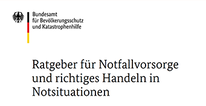
© stock.adobe.com
General information
Legal basis
The legal bases in the currently valid version are
- School Act of the State of Saxony-Anhalt
- Ordinance on flat-rate guest school fees
- Statutes on school transportation in the Börde district
General education sector
- Ordinance on school development planning 2022 incl. amendment ordinance
- Ordinance on transitions between school types at lower secondary level
- MB circular decree "Admission to secondary schools" including
- Schedule for admission to secondary schools
- Circulars of the MK "Teaching organization at ... (respective school type)" and
- Statutes for the determination of school districts and school catchment areas for general education schools in the Börde district (official gazette of the Börde district)
Vocational education sector
- Ordinance on school development planning 2022 incl. amendment ordinance
- Ordinance on class formation and admission to vocational schools
- Supplementary regulations on class formation at vocational schools
- Ordinance on vocational schools
- Ordinance on the vocational preparation year
- Decree on regional and supra-regional specialized classes at vocational schools
- Directive on the granting of subsidies to promote school construction
Structure of the school system
School authorities and school boards
The school authorities and the education authority are responsible for the schooling of children in the district of Börde. The local authorities are responsible for elementary school. The school authorities of special schools, secondary schools and vocational schools are the districts and independent towns. The school authorities are responsible for providing the required number of schools and school facilities, equipping them with the necessary equipment and maintaining them in an orderly manner, as well as closing or restricting them, taking into account the objectives of school development planning (Section 64 of the Saxony-Anhalt School Act). The tasks of the school authorities are, for example, the provision of the material conditions for the implementation of lessons, school development planning, the organization of school transport, questions of school transport safety, the conclusion of statutory school insurance (accident, property damage and liability) and the regulation of admission to secondary schools (possibly lottery procedure).
District of Börde Office for Education Bornsche Str. 2 39340 Haldensleben
Phone: +49 3904 7240-1411 Fax: +49 3904 7240-51420 E-mail: schulen-kultur@landkreis-boerde.de
The state supervises the entire school system. State school supervision includes the planning, organization and development of the school system.
The school authorities are
The State Education Authority is responsible for legal, official and technical supervision and advises and supports schools in their further development. It also decides on applications for schooling outside the school district or for special educational support/joint teaching.
Start, duration and end of compulsory schooling
School attendance is compulsory for all children and young people living in the state of Saxony-Anhalt (compulsory schooling). All children who have reached the age of six by June 30 are required to attend school from the beginning of the following school year.
The compulsory schooling lasts 12 years after it begins. All compulsory school pupils initially attend elementary school (elementary school, special school) and lower secondary schools (secondary school, community school, grammar school, special school, comprehensive school) for at least 9 years. If they do not subsequently attend general education schools (secondary school, community school, grammar school, special school, comprehensive school), they fulfill their compulsory schooling by attending a vocational school. A compulsory school leaver who does not fulfill his or her compulsory schoolingmay also be sent to school against his or her will if other educational measures, in particular personal counseling, advice to the parents, the trainer and the employer of the person obliged to attend school and the involvement of the responsible youth welfare office, have been unsuccessful.



